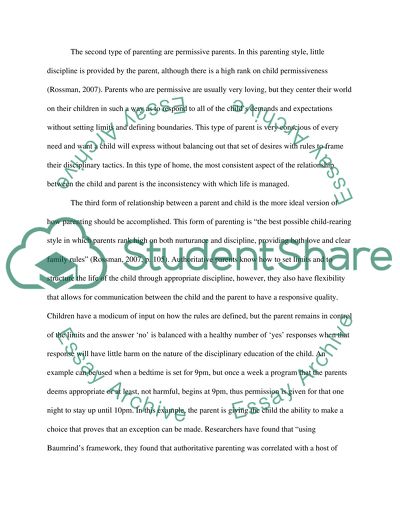Cite this document
(“An examination of the three styles of parenting as proposed by Diana Essay”, n.d.)
Retrieved from https://studentshare.org/literature/1426272-an-examination-of-the-three-styles-of-parenting-as-proposed-by-diana-baumrind
Retrieved from https://studentshare.org/literature/1426272-an-examination-of-the-three-styles-of-parenting-as-proposed-by-diana-baumrind
(An Examination of the Three Styles of Parenting As Proposed by Diana Essay)
https://studentshare.org/literature/1426272-an-examination-of-the-three-styles-of-parenting-as-proposed-by-diana-baumrind.
https://studentshare.org/literature/1426272-an-examination-of-the-three-styles-of-parenting-as-proposed-by-diana-baumrind.
“An Examination of the Three Styles of Parenting As Proposed by Diana Essay”, n.d. https://studentshare.org/literature/1426272-an-examination-of-the-three-styles-of-parenting-as-proposed-by-diana-baumrind.


